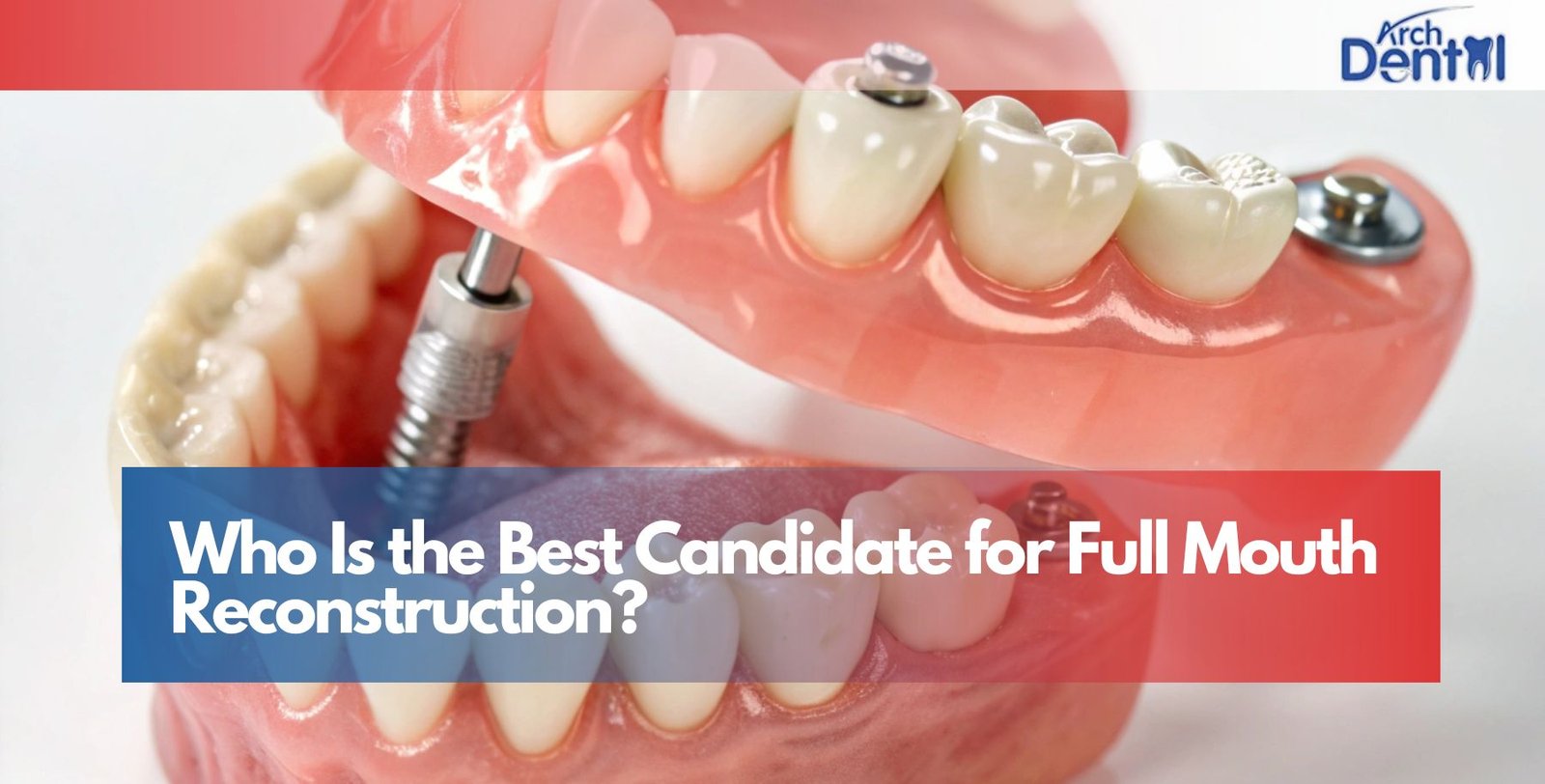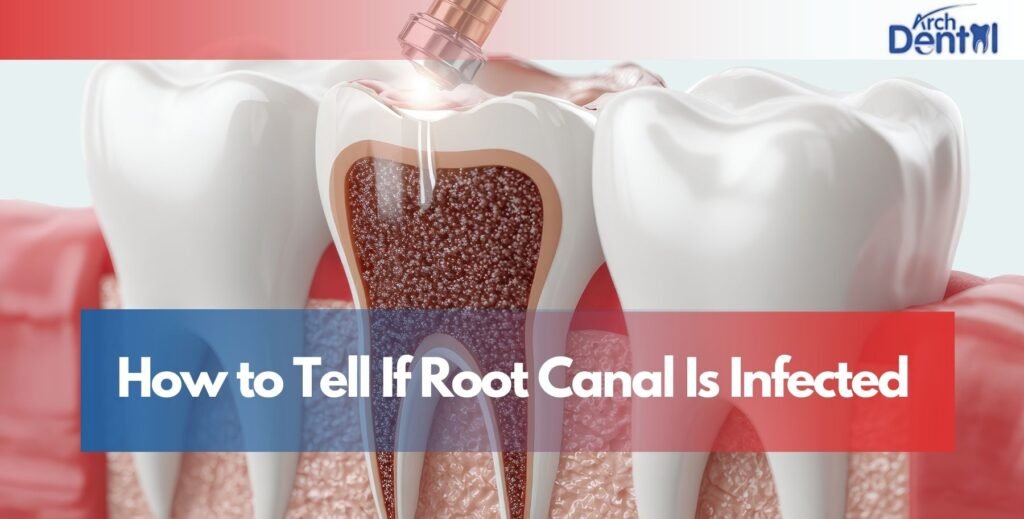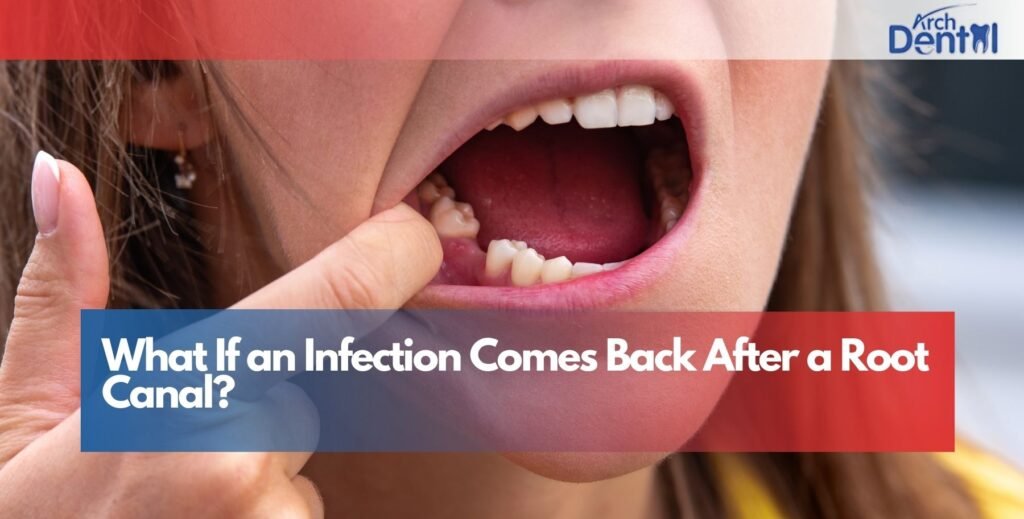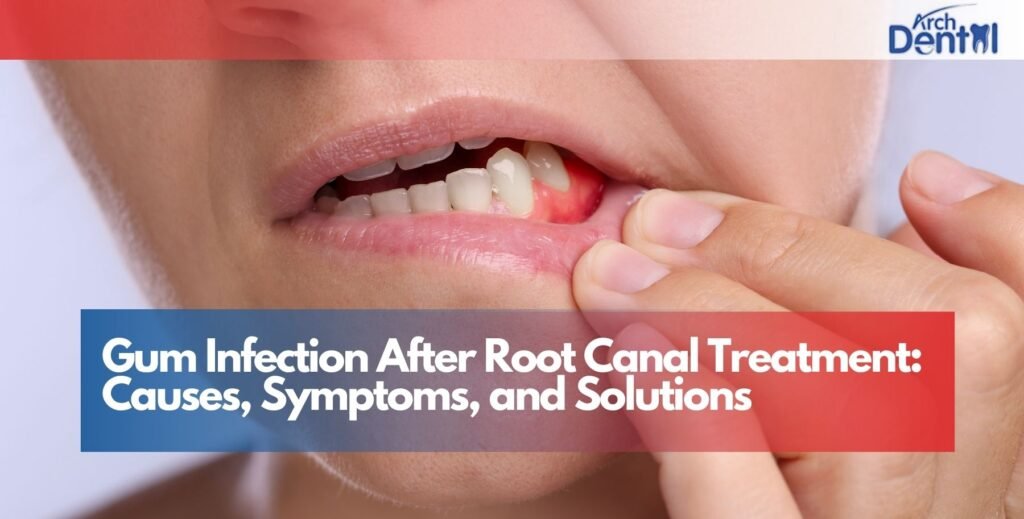Full mouth reconstruction is one of the most transformative procedures in modern dentistry. It involves rebuilding or replacing most or all of the teeth in both the upper and lower jaws to restore function, health, and aesthetics. While many people can benefit from individual treatments like crowns or implants, full mouth reconstruction is a comprehensive plan that addresses complex, interconnected problems. Determining whether someone is the “best” candidate requires evaluating oral health, overall health, and personal goals.
Understanding Full Mouth Reconstruction
Full mouth reconstruction restores function and aesthetics by combining crowns, implants, bridges, and bite correction for patients with extensive dental damage.
What Full Mouth Reconstruction Actually Involves
Full mouth reconstruction is not a single procedure but a customized combination of restorative, cosmetic, and sometimes surgical treatments. Common components include dental crowns, bridges, veneers, implants, root canal therapy, gum reshaping, and orthodontics. The goal is to create a stable, functional bite while achieving a natural-looking smile.
Why It Differs from a “Smile Makeover”
Unlike purely cosmetic smile makeovers, full mouth reconstruction prioritizes health and bite alignment first. Aesthetics are important, but correcting underlying structural issues—such as worn enamel, missing teeth, or jaw misalignment—takes precedence.
The Planning Process
Every successful reconstruction begins with a thorough examination, including digital X-rays, 3D scans, bite analysis, and photographs. The dentist evaluates tooth wear, bone levels, gum health, and jaw joint function to create a step-by-step treatment plan that may span several months or longer.
Signs You May Need Full Mouth Reconstruction
Severe wear, multiple missing teeth, chronic jaw pain, cracked restorations, or bite collapse that affects chewing and causes headaches signal the need.
Severe Tooth Wear from Grinding or Acid Erosion
Patients who clench or grind their teeth (bruxism) for years often experience significant enamel loss, making teeth short, chipped, or sensitive. Acid erosion from dietary habits or reflux can produce similar damage. When multiple teeth are severely worn, isolated crowns are rarely enough—the entire bite must be rebuilt to a proper height.
Multiple Missing Teeth or Failing Restorations
People with several missing teeth, large failing fillings, or cracked old crowns frequently develop bite collapse. Remaining teeth drift, overload, or fracture. Full mouth reconstruction replaces missing teeth with implants or bridges while crowning compromised natural teeth for uniform strength.
Chronic Pain or Dysfunction in the Jaw Joint (TMJ)
Headaches, jaw clicking, muscle soreness, and difficulty opening the mouth widely can signal temporomandibular joint disorders. In many cases, an unstable bite contributes to these problems. Reconstruction can reposition the bite into a more harmonious relationship, often relieving long-standing pain without surgery.
Health Factors That Make Someone an Ideal Candidate
Stable overall health, controlled medical conditions, strong bone density, healthy gums, and excellent oral hygiene habits ensure predictable healing and long-term success.
Good Overall Physical Health
While many medical conditions can be managed during dental treatment, uncontrolled diabetes, active chemotherapy, or severe osteoporosis with bisphosphonate use can complicate healing after implants or extractions. Patients in stable health generally experience smoother treatment and better long-term outcomes.
Commitment to Oral Hygiene and Maintenance
Full mouth reconstruction represents a significant investment of time and money. The best candidates understand that meticulous daily brushing, flossing, and regular professional cleanings are non-negotiable. They also commit to wearing nightguards if bruxism is present and attending recall visits every three to six months.
Realistic Expectations and Psychological Readiness
Patients who view reconstruction as a partnership with their dentist tend to have the highest satisfaction. Ideal candidates want to resolve pain, improve chewing, and regain confidence—not necessarily achieve a perfect “Hollywood” smile that may require compromising healthy tooth structure.
Common Conditions That Respond Exceptionally Well
Trauma, congenital defects, advanced decay, severe bruxism, erosion from reflux, and failing old dentistry dramatically improve with comprehensive full mouth reconstruction.
Congenital Disorders or Developmental Issues
People born with amelogenesis imperfecta, dentinogenesis imperfecta, or severe crowding often face a lifetime of dental problems. Full mouth reconstruction can provide the first opportunity for durable, attractive teeth that function normally.
Trauma from Accidents or Sports Injuries
Individuals who have lost multiple front teeth or fractured jaws in accidents frequently benefit from coordinated implant placement and prosthetic reconstruction. Modern materials and techniques can restore both appearance and bite strength remarkably close to natural dentition.
Long-Term Neglect Leading to Advanced Breakdown
Some patients reach a point where decay, gum disease, and broken teeth affect nearly every tooth. When bone and gum tissues remain reasonably healthy, full mouth reconstruction offers a predictable way to regain oral health rather than progressing to complete dentures.
Age Considerations and Timing
From young adults with aggressive wear to active seniors avoiding dentures, the ideal time is when damage impacts daily life and health allows treatment.
Younger Adults with Aggressive Wear Patterns
Patients in their 30s and 40s who already show extreme wear benefit tremendously from early intervention. Rebuilding the bite at this stage prevents further damage and often eliminates the need for more invasive treatment later.
Middle-Aged Patients Seeking Functional Restoration
The 50–65 age group frequently presents with a combination of worn teeth, old failing dentistry, and moderate bone loss. Advances in implant technology and materials make success rates extremely high for healthy individuals in this demographic.
Seniors Who Want to Avoid Dentures
Many active seniors refuse to accept removable dentures. When sufficient bone remains or can be augmented, full mouth reconstruction supported by strategic implants provides fixed teeth that feel and function like natural ones.
Financial and Lifestyle Readiness
Ability to invest in treatment, time for multiple appointments, commitment to maintenance, and strong motivation lead to the highest satisfaction and lasting results.
Ability to Invest in Long-Term Oral Health
Full mouth reconstruction is rarely covered completely by insurance, though some procedures qualify for partial reimbursement. The best candidates view the expense as an investment in quality of life eliminating pain, improving nutrition through better chewing, and reducing future dental emergencies.
Time Availability for Multiple Appointments
Treatment typically requires 10–20 visits over 6–18 months, depending on complexity. Patients who can arrange their schedule accordingly experience less stress and better results.
Support System and Motivation
Having family encouragement or a personal goal such as looking better for a wedding, new career, or retirement helps patients stay committed through longer treatment phases.
Conclusion
The best candidate for full mouth reconstruction is not defined by age, income, or the severity of damage alone. Instead, it is the individual who presents with multiple compromised teeth, desires comprehensive restoration of both function and aesthetics, maintains good overall health, and demonstrates unwavering commitment to the process and long-term maintenance. When these factors align, the results can be life-changing relieving chronic pain, restoring confident smiles, and providing durable teeth that last decades.
If you recognize several of these signs and are ready to explore whether full mouth reconstruction is right for you, scheduling a comprehensive evaluation is the logical next step. A skilled Dentist in Northampton, MA with advanced training in restorative dentistry in Northampton, MA can determine the most effective path forward and guide you toward a healthier, more functional smile that enhances every aspect of daily life. The journey requires partnership, but for the right candidate, the destination is truly worth it.





